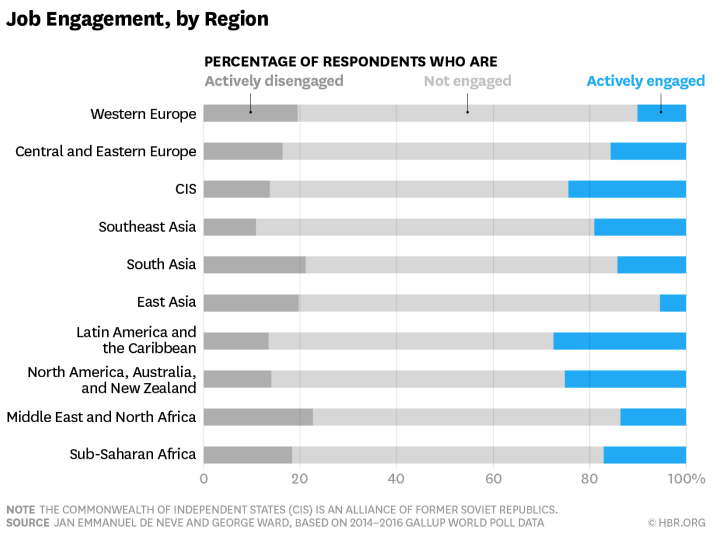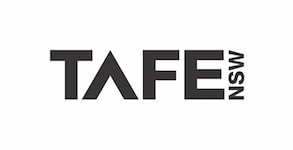Considering you spend a majority of your time at work, it’s likely you’ve been asked “are you happy at work?” or “do you like what you do?” hundreds of times by family, friends, random tinder dates, and employers. How’d did you answer last time? How did you measure that happiness, and what had the biggest impact on your answer?
Luckily for us, the brains over at Harvard Business Review have been reviewing the Gallup World Poll and the World Happiness Report and come up with some of the major factors that impact the subjective feeling of “happiness” at work.
HOW DO YOU MEASURE HAPPINESS AT WORK?
So if it’s subjective, how do you measure it?! Well, there’s something called the Cantril Ladder. Essentially, you take a really good run up and climb as high as you can in 10 seconds. You then count the rungs and that number is your happiness score. Easy!
No, of course, that’s not true. You actually imagine a ladder with 10 rungs. On that ladder, the top indicates what you imagine to be your “best possible life” and the bottom conversely indicates your “worst possible life”. You’re asked to choose which rung you believe you’re on now, and which rung you think you’ll be on five years from now.
If you think that sounds a little vague, you’re right. Measuring happiness, or the state of “well-being” is very difficult as everyone measures elements of their life differently. To some, income is a critical component of their happiness, to others happiness is measured by social interactions. A plethora of research has been done for both, so let’s check out some results.
Does Money Buy Happiness?

The cynic in me, I call him Alf, assumes that the people who believe money and happiness is intrinsically linked are generally those with plenty of money. I’d also say that this is correlation not causation. While being wealthy may allow you to buy nicer things which would impact your level of perceived happiness, there are also stereotypically negative impacts like prolonged working hours, extensive travel, and stress-inducing levels of responsibilities which would undoubtedly lower your perception of happiness.
A common and easily understood assessment of this question is that income affects your happiness until your basic needs like food, shelter, and access to medical assistance are met. From that point, increases in income have a lower influence on your wellbeing.
Back in 2008, Angus Deaton (Dwight D. Eisenhower to his friends) published an extensive paper on the correlation of income and happiness based on findings from the Gallup World Poll. Initially the findings were less than earth-shattering. People from wealthy countries, with better access to living necessities like healthcare, perceived their levels of happiness to be high, while poorer countries reported lower levels of happiness.
Deaton’s research is incredibly in-depth and ventures into a wide spectrum of correlations, and it’s worth a read if you want to better understand how people around the world interpret happiness and how it matches or contradicts your views.
HOW DOES HAPPINESS AFFECT ENGAGEMENT
Back to the team at Harvard now, at it looks like there’s a credible correlation between your happiness at work and how engaged you are with your work. It’s not what you’re thinking though. It’s actually more likely for you to be disengaged at the work you rate as being happy with. Here’s a graph:

“The number of people noting that they are actively engaged is typically less than 20%, while being around 10% in Western Europe, and much less still in East Asia” – Harvard Business Review.
Not what you imagined right? Well, perhaps it’s time to question the “do what you love and you’ll love what you do” model.
DO YOU NEED TO LOVE WHAT YOU DO?
It’s a pretty common thing to hear high profile business influencers rep the idea of chasing your passion. “If you do something you love, it won’t feel like work at all” and similar quotes are abundant, but chasing something that you’re actively passionate about may be setting you up for a strong period of unhappiness depending on what your passion or goals are.
The Reality Check, a Canadian podcast, touched on this concept in their 369th Episode. After discussing a popular address to college graduates from Steve Jobs, host Darren McKee references a book by William MacAskill that explains (I’m paraphrasing here) that there are three primary issues with that thinking. Firstly, what you are passionate about may not be something somebody wants to pay you for. Secondly, passions/interests change over time. Thirdly, it’s actually elements of the job, not your passion, that affect your happiness the most.
McKee then references other studies to surmise that third point. The five primary factors of an occupation that impacts happiness are:
- Independence – do you have autonomy in your role?
- Sense of Completion – are you in a role where you can complete the things you work on?
- Variety – how varied are your tasks in your role – do they use a range of skills or force you to learn new ones?
- Feedback from the Job – how easy is it for you to receive feedback (positive or negative) from your colleagues/managers?
- Make a Difference – to what extent does your role make a difference to your industry/community etc
There’s also other practical elements:
- Support from Colleagues – does your team support you in your endeavours – celebrating wins, working together to conquer losses?
- Income – how does your income affect your lifestyle?
- Commute – how long is your commute? Long commutes can lead to low satisfaction due to effort and time wastage involved (even though it has nothing to do with the role itself).
SO SHOULD YOU NEVER FOLLOW YOUR DREAMS?
Of course not! Following your dreams and passions is one of life’s great joys. When it comes to finding a job that you’re happy in though, your passion is likely not to be the primary contributor to your decision. For many people, your 9-5 is the money maker to follow your passions in other parts of life. So go ahead and volunteer with a charity, travel more, or own 47 labradors and live on a rural property (a.k.a the dream).
But on the way to get there, finding a job that answers those five criteria and knowing that your happiness is not simply tied to your passion is something to keep in mind!
NEED TO CONNECT WITH YOUR COLLEAGUES?

Connecting corporate teams is what we do best. Our stellar range of events, games and activities offer your office buddies the opportunity to work together towards a common goal by solving puzzles, tackling challenges, and untangling riddles.
Get in touch with us today to discover what it truly means to be happy at work. Let’s Fun!



























































































